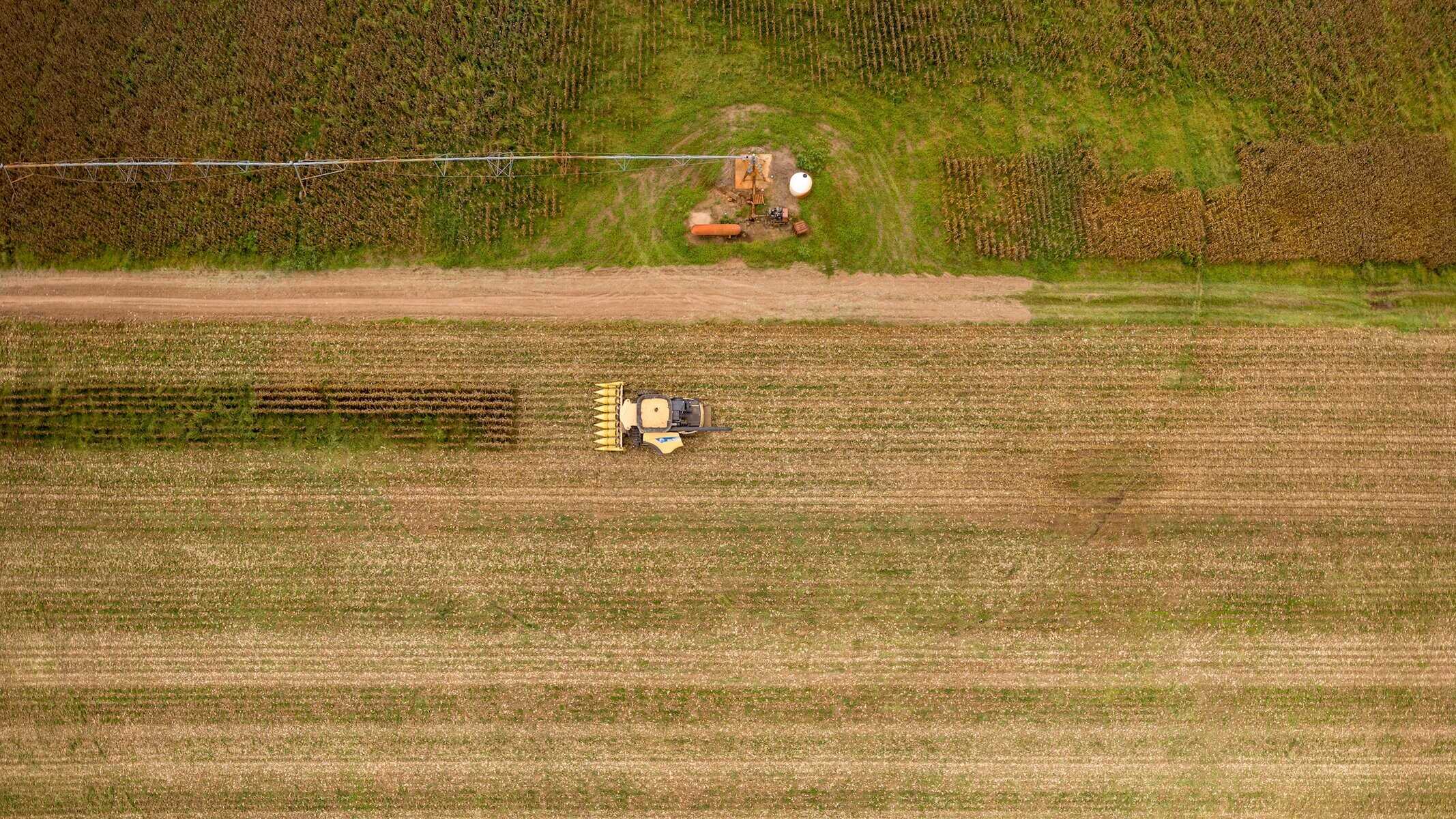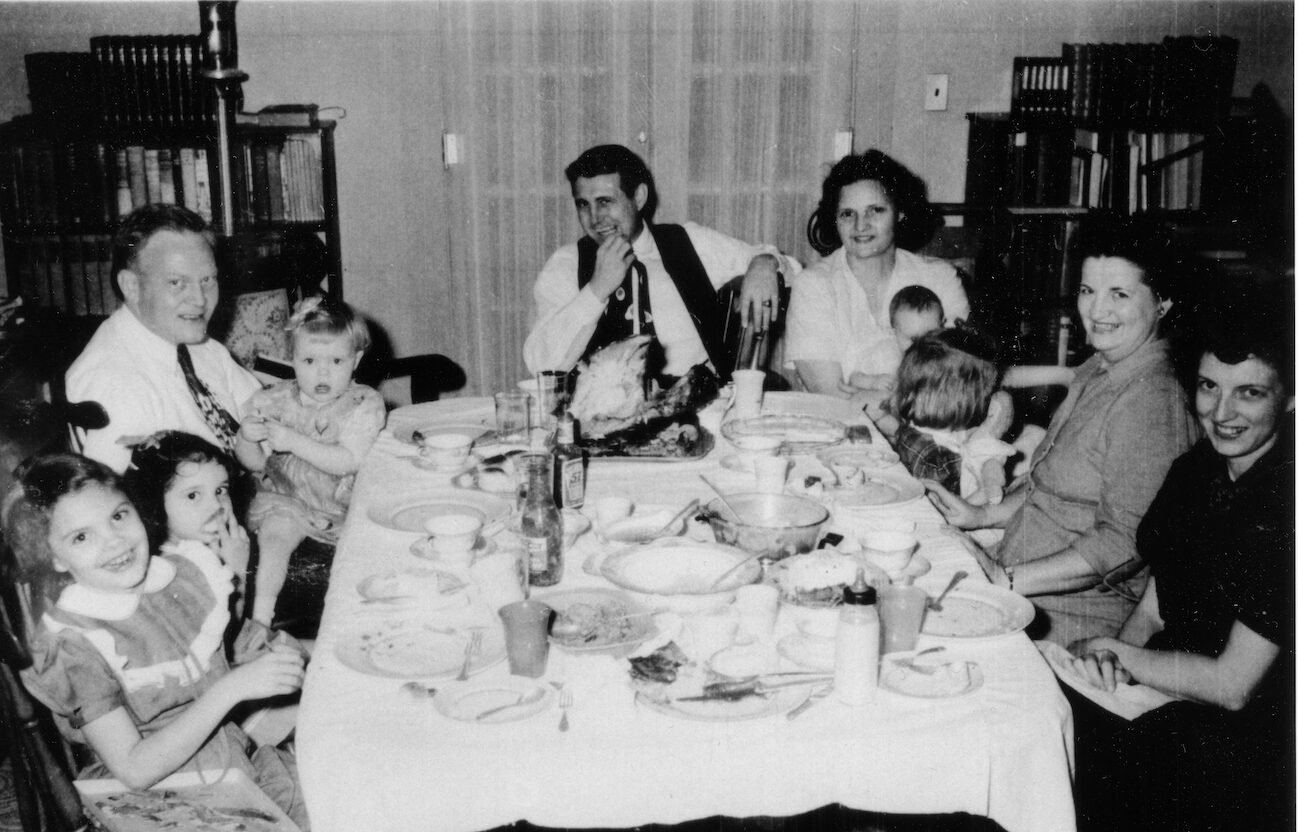Agriculture serves as the foundation of life in Arkansas.
You can see it throughout the state in soybean fields, chicken houses, and cattle herds. Approaching more populated areas, agricultural scenery slowly gives way to development. However, even in the urban centers no one is very far removed from agriculture.
For every $7 in the state economy, $1 comes from agriculture.
Agriculture stands as Arkansas’ largest industry, contributing approximately $20.9 billion annually to the state’s economy. The state is a leading exporter of rice, soybeans, cotton, poultry, and feed grains. Arkansas farmers proclaim with pride such attributes as Arkansas County being the top rice-producing county in the USA, or Lonoke County exporting more baitfish than any nation worldwide. In 2022, agriculture provided 242,487 jobs, with wages amounting to $10,912 million, representing 12.6% of the state’s total. Value-added processing of agricultural products generated $24,341 million, and labor income accounted for $13,295 million. Remarkably, Arkansas is among the few states where average per capita farm income surpasses non-farm per capita income (Miller & Wheeler, 2021).

Agriculture is not merely an industry; it is the cornerstone of life in Arkansas.
The onset of agriculture marked the beginning of civilization, when humanity transitioned from nomadic lifestyles to settled agricultural practices. According to archaeologists and anthropologists, this fostered stability, enabling communities to organize, develop, and grow. Historically, family farms constituted the predominant organizational structure of agriculture. However, with the advent of the industrial revolution, a shift towards efficiency led to the adoption of an industrial model in agriculture. The emphasis on increased yield prioritized financial value as the primary consideration.
Arkansas agriculture is among the most productive and efficient systems in the world; However, Arkansas farmers and ranchers recognize the multifaceted value generated by agriculture, encompassing economic, cultural, emotional, and spiritual dimensions. Much of Arkansas’ agricultural practices are rooted in culture and tradition. Many cattle producers continue the legacy of their predecessors, maintaining practices because “that’s what Daddy did.”
Local sale barns and old-fashioned coffee shops where farmers gather support economic activity and also reinforces social cohesion. Conversations about cattle prices or harvest conditions serve as community-building interactions. Farmers’ markets offer quality homegrown produce alongside opportunities for social engagement. Local farmers participate in gleaning programs or raise money to address local food insecurity (Boles, 2023).
Agriculture in Arkansas provides cultural stability and interconnectedness that can evolve into strength and security.
Arkansas is characterized by its family farming operations, with 49,346 farms statewide, 97 percent of which are family farms (Miller & Wheeler, 2021). Family farms are defined by their organizational structure rather than size (Francis, 1994). Some of the largest farms in Arkansas operate under family ownership. The state’s diverse agricultural landscape is shaped by geography: river bottoms and delta regions are ideal for row crops, rocky terrain supports cattle pastures, and rolling hills are suitable for orchards and fruit production. The cultural fabric of rural Arkansas varies by location, influenced by local agricultural practices. For instance, plantation culture in East Arkansas differs significantly from cattle farming in North Arkansas, poultry production in Northwest Arkansas, or the piney woods of South Arkansas. Order a steak in Stuttgart and more than likely it will come with a side of rice instead of potatoes. Research (Boles, 2023) has shown that local attitudes and definitions of dignity vary across different parts of Arkansas, highlighting the influence of local agricultural cultures.

Agriculture in Arkansas provides cultural stability and interconnectedness that can evolve into strength and security. Years ago, I heard a story that remains relevant today, a story about Earl Butz, the secretary of agriculture under Jimmy Carter. One time, he had the opportunity to tour a nuclear submarine. Secretary Butz asked the admiral hosting the tour, “This submarine is a nuclear sub, without the need to refuel. It produces its own oxygen. It produces its own water. How long can you stay down?” The admiral replied, “I can’t believe the secretary of agriculture asked me that. We can stay down until we run out of food.” Food is our limiting factor, and agriculture provides that food. Agriculture in Arkansas contributes not only sustenance but also economic prosperity, cultural identity, and social cohesion. It forms the cultural through-line across the state, shaping the atmosphere and reality of life in Arkansas.
Boles, J. (2023). Community Leadership, Food Security, and Capability in Arkansas. University of Central Arkansas.
Francis, D. Family Agriculture: Tradition and Transformation. Earthscan Publications, Ltd.
Miller, W., Wheeler, E. (2021) Rural profile of Arkansas 2021 Social and economic trends affecting rural Arkansas. University of Arkansas Cooperative Extension Service.

Dr. Jack Boles began his career with the UA Cooperative Extension Service in 1987 where he served in a variety of positions, from County Extension Agent in Independence, Arkansas and Newton counties to serving as the Environmental Management Specialist for agricultural issues. He retired with Emeritus status from Extension in 2013 and served as Executive Director for the State 4-H Foundation.
After retirement, Jack went back to school and received his doctorate in Interdisciplinary Leadership from the University of Central Arkansas. His research interest in leadership and food security is based on his experiences as a county agent in Arkansas and as a volunteer livestock specialist in Bangladesh, Cambodia and Indonesia. Jack is an advocate for food security, small farms and local farmers; and along with his wife Lisa, works to promote peaceful communities through their organization The Dove’s Nest Project.



